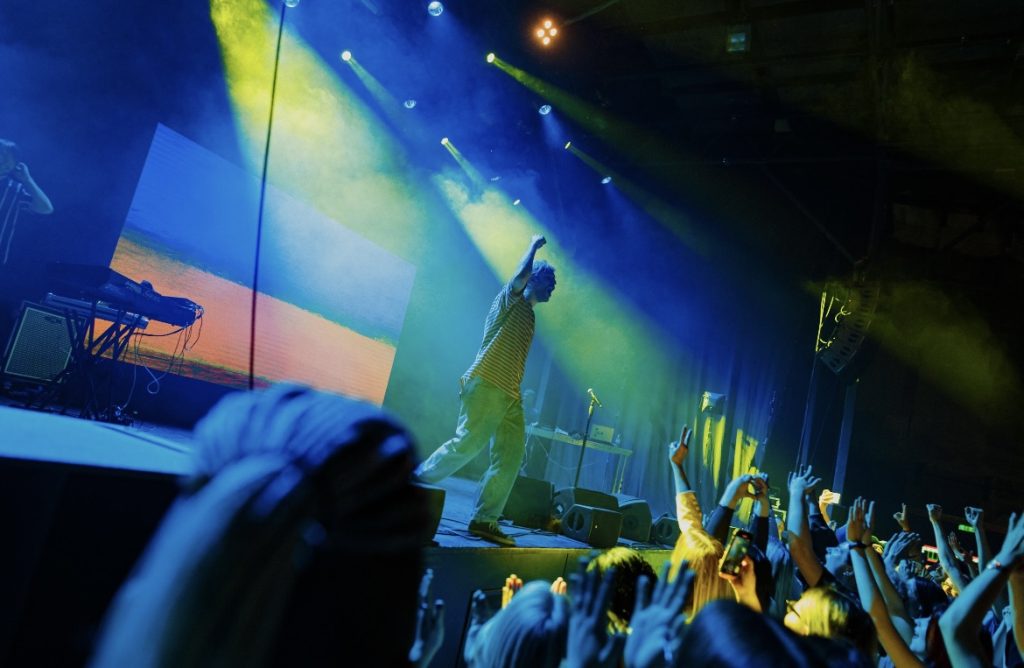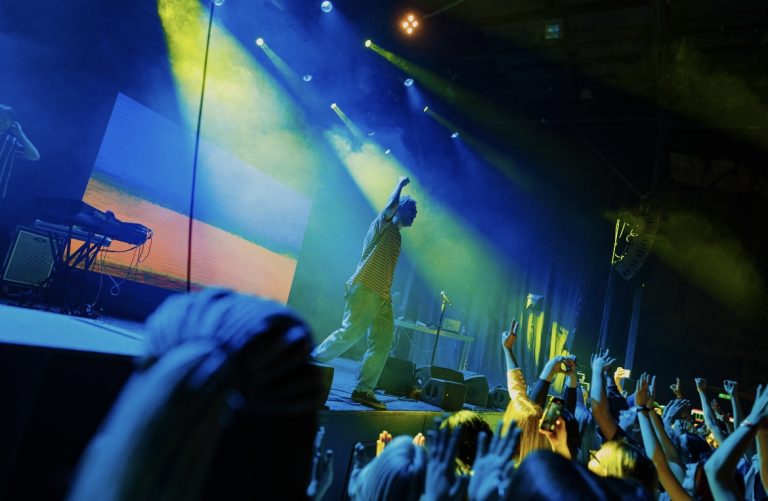In 1827, while walking in the Sparrow Hills above Moscow, the poet Nikolai Ogarev (1813-1877) and the writer and philosopher Alexander Herzen (1812-1870) swore to each other that they would devote their lives to the struggle for freedom. In Russia. A few years later, after being persecuted by an oppressive state, they ended up emigrating to Europe, where they continued their efforts in exile. British historian Edward Hallett Carr covered the story of mid-nineteenth-century Russian political and cultural migration in his 1949 book Romantic Exiles; Today it is relevant again. Within just one year of Russia's military invasion of Ukraine in February 2022, more than one million Russian citizens have left the country for destinations around the world.
This escape from the brutal tyranny of Putin's regime represents the fifth wave of Russian emigration since the Bolshevik Revolution in 1917 and the second since the collapse of the Soviet Union in 1991. “This exodus is a terrible blow to Russia,” says historian Tamara Edelman. “The class that could have changed something in the country has now been washed away,” he, who moved to Portugal after the invasion, told The Washington Post in February 2023. For political and economic reasons, the military mobilization carried out in the fall of 2022 led to the departure of young and highly educated people from Russia.
An important part of this modern Russian diaspora consists of cultural workers and artists. Through its war in Ukraine, the Russian regime destroyed Russia's independent, non-state culture. The closure of cultural institutions, such as the Gogol Center in Moscow in June 2022, goes hand in hand with harsh repression, nipping in the bud and suppressing public dissent and protests against the war in Ukraine, which citizens are not allowed to call anything else. From a “special military operation.”
Novaya Gazeta reports that over the course of 2022, around 20,000 Russian citizens were imprisoned for expressing public opposition to the war, and are now awaiting sentencing or already serving multi-year prison sentences. Even now, not a day goes by without new arrests, trials, trials, sentences and recruitment into the army. Putin's regime has long declared many public figures and organizations “foreign agents”, banning them from public appearances and activities, while the police constantly respond to complaints and use special units to break up cultural events, as they did in 2013. Early November 2023 before the scheduled start For the concert of the band Zero People in St. Petersburg.
Cooperation and exchange
Until February 24, 2022, the Ukrainian and Russian music scenes were intertwined – in fact, they were essentially one. After the collapse of the Soviet Union, Ukrainian musicians have been active members of the Russian music scene and regular and popular guests on stages across Russia, and vice versa. In the early years of the 21st century, one of the most famous Russian-language pop projects was VIA Gra, a girl group founded in Kiev. Ukrainian artists 5'nizza, Verka Serduchka and BoomBox sang in Russian and Ukrainian and had a loyal fan base in both countries.
The success of singer Ruslana at Eurovision in 2004 gave impetus to a new wave of Ukrainian names, which was ridden by the likes of Yulka, Potap and Nastya, the Quest Pistols, and then in 2012 by Ivan Dorn, who rose to the top of the Russian charts and stages. His debut album Co'n'Dorn today ranks among the most critically acclaimed post-Soviet albums, topping the list of the best LPs from 1991 to 2021 compiled by Russian online culture site Afisha Daily, ahead of records by Russian groups Kino and Auktsyon. And tattoo
Its success encouraged other compatriots such as Max Barskiy, Svetlana Loboda, Vremya i Styklo, Monatik, Artek and Asti, Alekseev and Luna, who also captivated Russian audiences in Russian, bringing a new and different energy to the music scene of the medium. From the last decade. They differed from their Russian competitors in their brighter, more relaxed dancing and experimental styles, which also brought people from the background to the foreground – Russian singers began to fully cooperate with Ukrainian producers, sound engineers, videographers, camera operators, directors and designers in the desire for a more modern sound.
Kiev became an important center, if not the cradle, of the music industry on the eastern edge of Europe. Ukraine has been exposed to Western production, from which it has learned and connected creatively. Because it was more advanced than Russian production, the lion's share of Russian pop music shifted to working and recording in Ukraine, where production costs were also lower. outlet.

Evan Dorn performing in May 2022. In February 2022, Dorn condemned the Russian invasion of Ukraine. He was later included in the list of artists banned from performing in Russia. Photo: Olena Rohova / Source: Wikimedia Commons
Stop
From 2014 onwards, after Russia's annexation of Crimea and the beginning of the war in Donbas, many artists broke off contact with Russia, for example Okin Elzey and Odin in Kanoi. However, most of them continued their cooperation and exchanges – continuously, bilaterally and collectively – until February 24, 2022, when everything suddenly changed and the previously shared music market collapsed overnight. Today, Russian and Ukrainian music exist in two separate worlds.
The majority of Ukrainian artists who had previously sung in Russian answered “No!”. They went to war and collectively renounced singing in the Russian language, cut off all contact with Russia, and pulled their music from Russian streaming platforms. Ukrainian music disappeared from Russian television and radio, and its performers ended up on lists of banned compositions, along with their Russian colleagues who spoke loudly and clearly against the war. These include Valery Meladze, Boris Grebenshchikov's Akvarium, Yuri Shevchuk's DDT, Oxxxymiron, Bi-2 and Zemfira, most of whom have moved away from Russia.
In Ukraine, meanwhile, the playing of Russian music in the media and in public places has been banned since June 2022. Among other restrictive measures against Russian culture, a list of undesirable artists of Ukrainian origin who resided in Russia before the war was drawn up and supported by “Operation Special Military. Thus, we are witnessing the de-Russification of the Ukrainian musical and cultural market, and the de-Ukrainization of the Russian market.
A large group of Ukrainian musicians remained in Ukraine and continued to compose music that became patriotic and militant. “I don’t know how they manage their affairs, but despite the war, they continue to work, create, publish and perform without interruption,” Slovenian cultural sociologist Mitja Veliconia told me in October. Velikonja was the first foreign author and lecturer to travel around Ukraine after the beginning of the war, a trip he undertook on the occasion of the publication of his study of political graffiti and street art in the post-socialist transition, Images of Opposition in Ukrainian. .
Filled with impressions of the steadfastness and self-sacrifice of Ukrainians in their fight against the aggressor, he nonetheless expressed concern about the excessive nationalistic weaponization of folklore and the militarization of Ukrainian society in the service of hyper-nationalist goals, and referred to the Croatian journalist Boris. Dezolović's assertion that the war in Ukraine will lead to an intensification of nationalism in the same way as we saw in Croatia in the 1990s.
The other side, Russia, is imaginatively embodied in current local folk music by the singer Shaman, a favorite of Putin and the first outright agitprop singer in “modern” Russia, who loosened his blond braids during the war in Ukraine and combed his hair into his hair. Portrait of a young man with an Aryan appearance. With distinct Russian pride, he glorifies the homeland and glorifies the Russians. One of his latest songs was titled “My Struggle.”
These musicians who remain in Russia have to be very careful about what they say and sing. According to Boyarinov, musical expression in Russia suddenly changed and became more stringent. For example, Russian hip-hop, which was previously edgy, is making a marked shift towards the Russian chanson tradition and toning down its intensity. At the same time, in keeping with the times, Russian “non-state” music became increasingly imbued with sadness, melancholy and longing.
The most dynamic parts of the Russian music scene have moved outside the Russian world, and today its artists operate as part of the diaspora. Part of the Russian music industry has moved to Tbilisi, Yerevan, Helsinki, Stockholm, the Baltic states, Istanbul and Berlin. According to unofficial data, there are more than 200 thousand young Russians in Belgrade, where they have formed their own cultural community.
At the beginning of October, writer Pavel Basinsky drew attention to the absence of an important part of the cultural and artistic world in an opinion piece in the state newspaper Rossiyskaya Gazeta, in which he suggested that both writers who have departed and those who remain should be treated as part of the same culture, and should Finding a path to reconciliation regardless of ideology.
A torrent of criticism and “national” scorn rained down on him, but the controversy soon exploded, and actually disappeared, in a similar way to how memorials to victims of the Stalinist trials all over Russia disappeared without explanation – just one part of many events in Russia. Mosaic of Putin's review of Russian history.

